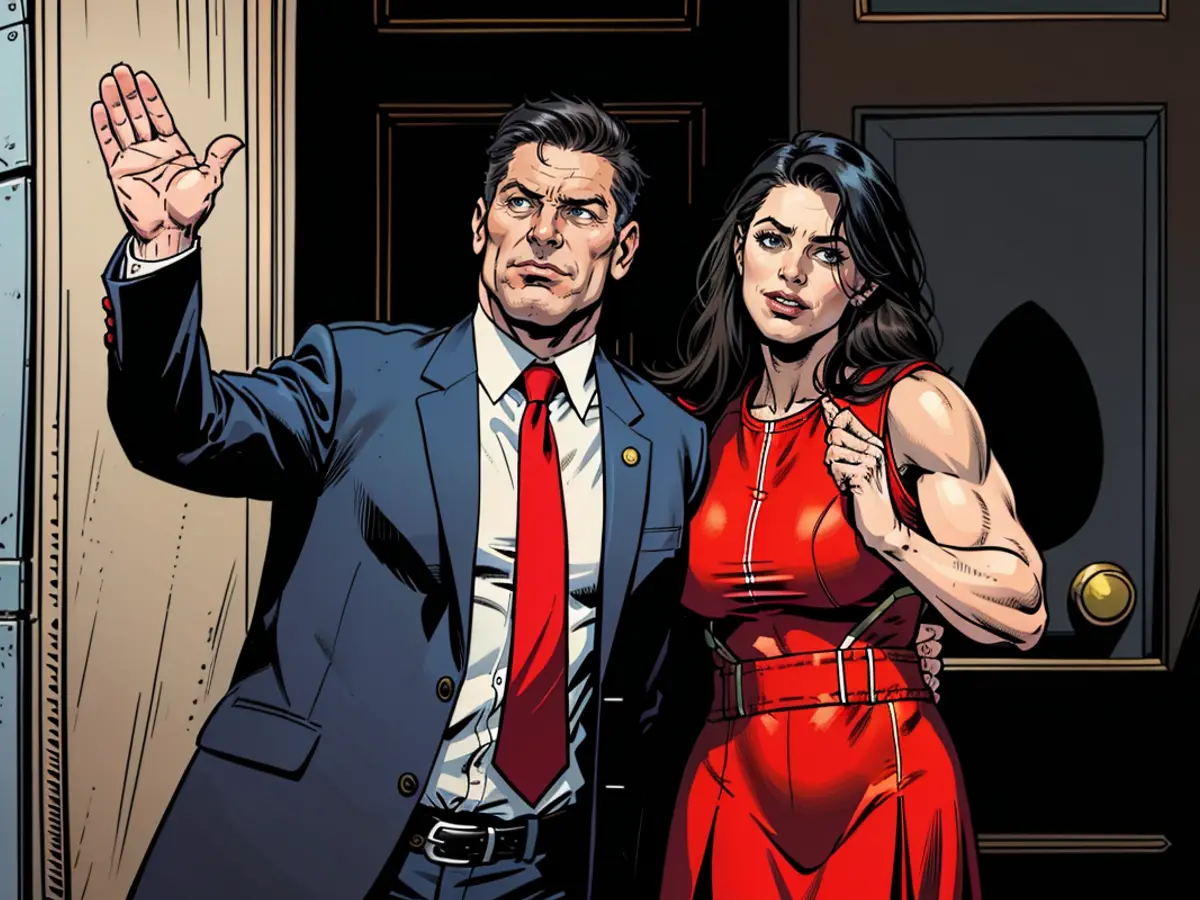Labor's election victory - New Prime Minister Starmer: Great Britain needs a fresh start
Britain has for the first time in over a decade had a social democratic prime minister. Keir Starmer (61), whose Labour Party won the parliamentary election decisively, campaigned for a fresh start. "Our work is urgent and we begin today," he said at his first appearance in London's Downing Street. However, he also acknowledged that this could not be achieved quickly and expressed understanding for political disillusionment in the country.
Changing a country is not comparable to flipping a switch. "It will take some time," Starmer said after being commissioned by King Charles III for government formation. With his party, he is replacing the Conservatives, who are left with a pile of rubble under the leadership of former prime minister Rishi Sunak.
Starmer is the first Labour prime minister since Gordon Brown and Tony Blair. According to the latest count, his party will have at least 412 of the 650 seats in the House of Commons. In the 2019 election, the party had only 202 seats. The Conservatives dropped from 365 to approximately 120 seats. As many cabinet members were rejected as never before.
Explaining the shift, an election analyst said
Labour's election victory is mainly due to the waning support for the conservative Tories. The share of voter votes for Labour was a mere 34 percent according to the current data. However, it was enough to secure a majority of seats in the House of Commons due to the British first-past-the-post electoral system, under which the candidate or candidate with the most votes in each constituency enters parliament.
Election analyst John Curtice from the University of Strathclyde in Glasgow explained the election result not as a result of enthusiasm for Labour, but rather as discontent with the previous government.
Sunak was already the third prime minister of his party during the previous legislative period, which was marked by economic stagnation, numerous scandals, and sharply rising living costs. Sunak took over from then-prime minister Liz Truss in October 2022, who resigned after only 49 days in office and also lost her seat in the House of Commons.
The Conservatives are facing a rubble
For Sunak's Conservatives, the election was a nightmare. "Landslide" and "massacre" are some headlines in the British press. Sunak announced his resignation as party leader. He said he would step down as soon as the formal regulations for succession were clarified. "I would first like to tell the country: I am sorry."
Among the Conservatives, the question arises who will lead the party and the opposition in the London parliament. Penny Mordaunt, who was also known for carrying a sword at Charles' coronation, was considered a candidate. However, she failed to enter parliament.
Interestingly, the former trade minister Kemi Badenoch and the former interior minister Suella Braverman, who both stand further to the right, are also mentioned as potential candidates. As moderate potential candidates, James Cleverly, the current interior minister, and Tom Tugendhat, the former secretary of state, are also mentioned. Cleverly was rather evasive when asked if he would run for office by Sky News.
Right-wing populist Farage makes a challenge
Many Britons have had enough of the problems.
Nigel Farage, the right-wing populist, made a challenge.
On the new premiership, Starmer faces numerous challenges - for instance, the overburdening of the state health service NHS, issues in housing policy, or the question of how the country intends to deal with immigration. Starmer may have to abandon the plan of the previous government to deport irregular migrants to Rwanda, regardless of their origin. A return of his country to the EU he has excluded.
The apathy towards the supposedly boring politician Starmer does not ignite great enthusiasm among the Brits. In many political areas, he remained vague. The leadership took over Starmer from the old leftist Jeremy Corbyn, who was accused of not doing enough against antisemitism in his party. Starmer distanced himself from this and led the party back to the political center. However, the war in Gaza continues to cause tensions within his party, which traditionally has close ties to the Palestinians.
In the election campaign, Starmer emphasized his bourgeois background - his father was a toolmaker and his mother a nurse. Due to his mother's serious illness, Starmer took on responsibility in the family at an early age, as his biographer Tom Baldwin writes. Starmer is a fan of the London football club Arsenal and still wants to play football himself from time to time. Friday evenings, he wants to keep free for his wife Victoria and his two teenage children.
- Keir Starmer, the newly appointed Prime Minister of Great Britain, acknowledged that changing the country would not be a quick process after his Parliamentary election victory.
- Rishi Sunak, the former Prime Minister under whom the Conservatives struggled with economic stagnation, numerous scandals, and rising living costs, announced his resignation following the election debacle.
- The Labour Party, led by Starmer, is replacing the Conservatives in Downing Street, with at least 412 seats in the House of Commons, thanks to the British first-past-the-post electoral system.
- King Charles III commissioned Starmer for government formation, with Gordon Brown and Tony Blair being the last Labour prime ministers before him.
- Former trade minister Kemi Badenoch and former interior minister Suella Braverman, who hold more right-wing views, are among the potential Conservative candidates to lead the opposition in London's Parliament.
- James Cleverly, the current interior minister, and Tom Tugendhat, the former secretary of state, are also mentioned as moderate candidates for the Conservative leadership.
- Nigel Farage, the right-wing populist, made a challenge to the new premiership, as the Brits grow tired of political problems and seek a different direction.








